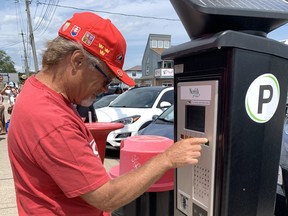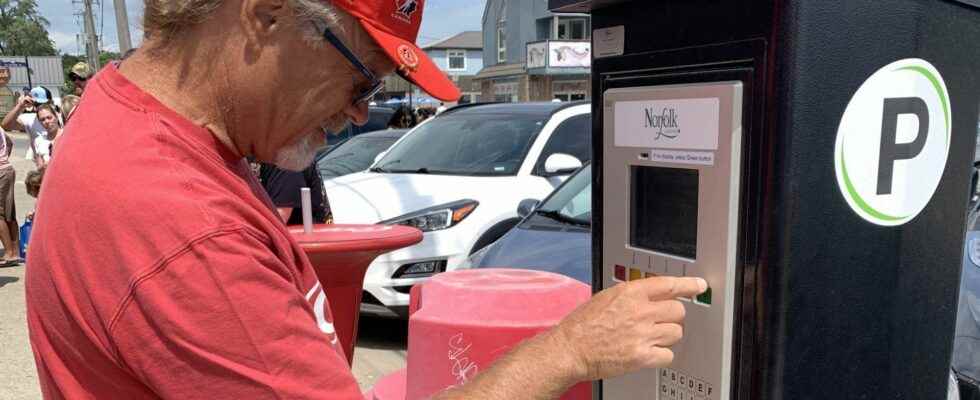
Whether a paid parking project for beach towns worked, discouraged visitors or made money is difficult to calculate, Norfolk councilors were told last week.
Despite many questions, councilors are looking at whether to bring back the paid parking pilot project that was in effect last summer in Port Dover and Long Point into the summer of 2023.
“This project has shone a light on some of the good and the bad,” said Coun. Alan Duthie.
“Overall, I’m in support of the motion going forward and getting more data. We didn’t know what we didn’t know until we did it.”
In an extensive breakdown of what could be gleaned about parking habits, problems and turnover, staff showed that the paid parking generated $158,000 in revenue but cost $121,000 for things like connectivity for the pay stations and sharing revenue with the vendor that runs the pay stations.
Another $70,000 had to be spent on the new pay stations and signage set up but staff noted those funds wouldn’t have to be spent again if the project was to run another year.
Councilors also noted there was no way to calculate the extra time spent by county staff and even local businesses dealing with questions, problems and complaints.
“How can we say there was a $51,000 surplus if no staff hours were expensed?” asked Coun. Adam Veri, who represents Port Dover.
“I don’t believe this is a profitable project if we counted the staff time and benefits.”
But county clerk Teresa Olsen pointed out staff spend hours wrestling with parking problems and complaints every year. Staff were receiving numerous complaints from shoreline area businesses about beach-goers settling into prime business parking spots for the entire day.
Part of the thrust of the project was to get turnover of the parking spots and that happened, she said.
There were struggles: those parking didn’t all grasp the instructions for the parking app or how to ensure they got a free hour of parking in Port Dover.
The new pay stations didn’t take cash or debit cards until the end of the year due to a supply chain issue.
Some parkers entered their own license plates incorrectly and got tickets and, unlike other lakefront communities using this system, Norfolk opted to reverse those tickets to help generate goodwill.
Core businesses complained that beach-goers moved further away from the paid parking and took spaces in front of stores and services so users couldn’t find a place to park.
About 800 tickets were issued to those who didn’t pay for parking, parked where there was no parking or overstayed their time – the bulk of them in Port Dover.
“Staff believe a second season of the pilot project would provide better data to inform council on the feasibility of a permanent paid parking program,” said the report presented to the council-in-committee.
And staff also want council to weigh in on where to spend the net revenue of about $51,000.
“If we were to do it again there wouldn’t be so much mystery,” said Coun. Tom Masschaele as a vote passed to extend the project.
“Running the program again is another opportunity for more education and input from various groups will make us better next year.”
Councilors voted to have staff prepare another report on how the project could be extended in 2023.
@EXPSGamble

Comments
Postmedia is committed to maintaining a lively but civil forum for discussion and encourages all readers to share their views on our articles. Comments may take up to an hour for moderation before appearing on the site. We ask you to keep your comments relevant and respectful. We have enabled email notifications—you will now receive an email if you receive a reply to your comment, there is an update to a comment thread you follow or if a user you follow comments. Visit our Community Guidelines for more information and details on how to adjust your email settings.
Join the Conversation